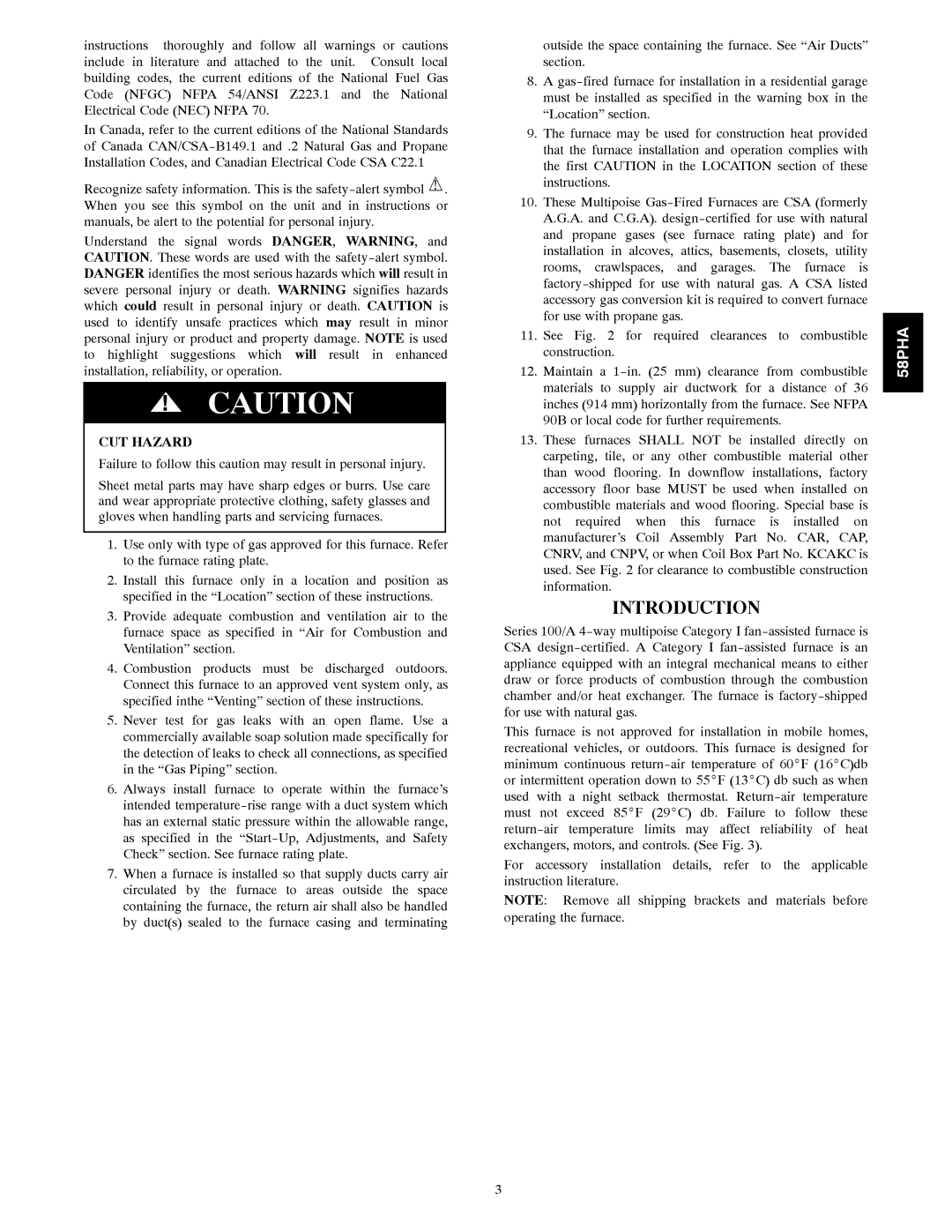
instructions thoroughly and follow all warnings or cautions include in literature and attached to the unit. Consult local building codes, the current editions of the National Fuel Gas Code (NFGC) NFPA 54/ANSI Z223.1 and the National Electrical Code (NEC) NFPA 70.
In Canada, refer to the current editions of the National Standards of Canada
Recognize safety information. This is the ![]() . When you see this symbol on the unit and in instructions or manuals, be alert to the potential for personal injury.
. When you see this symbol on the unit and in instructions or manuals, be alert to the potential for personal injury.
Understand the signal words DANGER, WARNING, and CAUTION. These words are used with the
!CAUTION
CUT HAZARD
Failure to follow this caution may result in personal injury.
Sheet metal parts may have sharp edges or burrs. Use care and wear appropriate protective clothing, safety glasses and gloves when handling parts and servicing furnaces.
1.Use only with type of gas approved for this furnace. Refer to the furnace rating plate.
2.Install this furnace only in a location and position as specified in the “Location” section of these instructions.
3.Provide adequate combustion and ventilation air to the furnace space as specified in “Air for Combustion and Ventilation” section.
4.Combustion products must be discharged outdoors. Connect this furnace to an approved vent system only, as specified inthe “Venting” section of these instructions.
5.Never test for gas leaks with an open flame. Use a commercially available soap solution made specifically for the detection of leaks to check all connections, as specified in the “Gas Piping” section.
6.Always install furnace to operate within the furnace’s intended
7.When a furnace is installed so that supply ducts carry air circulated by the furnace to areas outside the space containing the furnace, the return air shall also be handled by duct(s) sealed to the furnace casing and terminating
outside the space containing the furnace. See “Air Ducts” section.
8.A
9.The furnace may be used for construction heat provided that the furnace installation and operation complies with the first CAUTION in the LOCATION section of these instructions.
10.These Multipoise
11.See Fig. 2 for required clearances to combustible construction.
12.Maintain a
13.These furnaces SHALL NOT be installed directly on carpeting, tile, or any other combustible material other than wood flooring. In downflow installations, factory accessory floor base MUST be used when installed on combustible materials and wood flooring. Special base is not required when this furnace is installed on manufacturer’s Coil Assembly Part No. CAR, CAP, CNRV, and CNPV, or when Coil Box Part No. KCAKC is used. See Fig. 2 for clearance to combustible construction information.
INTRODUCTION
Series 100/A
This furnace is not approved for installation in mobile homes, recreational vehicles, or outdoors. This furnace is designed for minimum continuous
For accessory installation details, refer to the applicable instruction literature.
NOTE: Remove all shipping brackets and materials before operating the furnace.
58PHA
3
